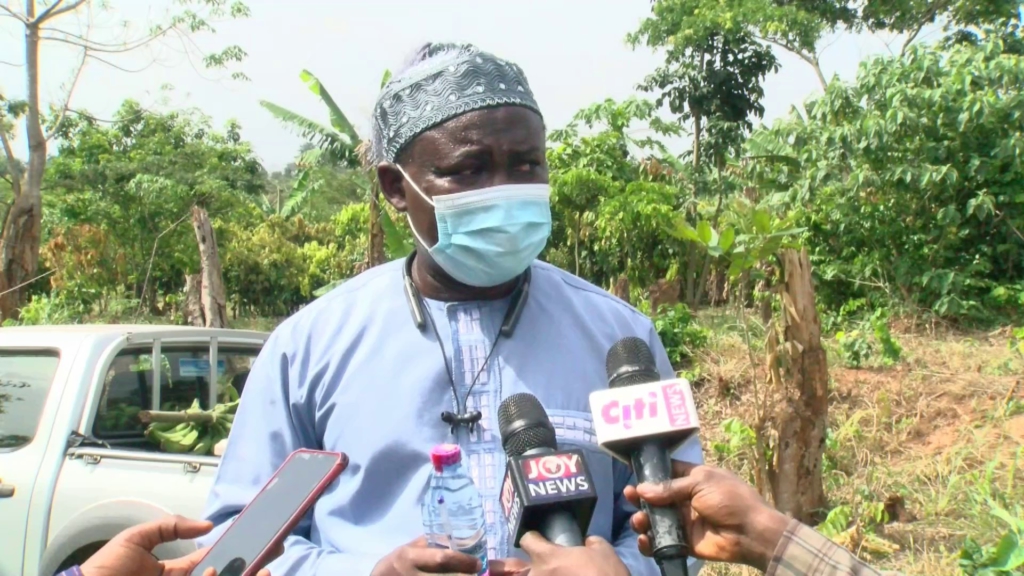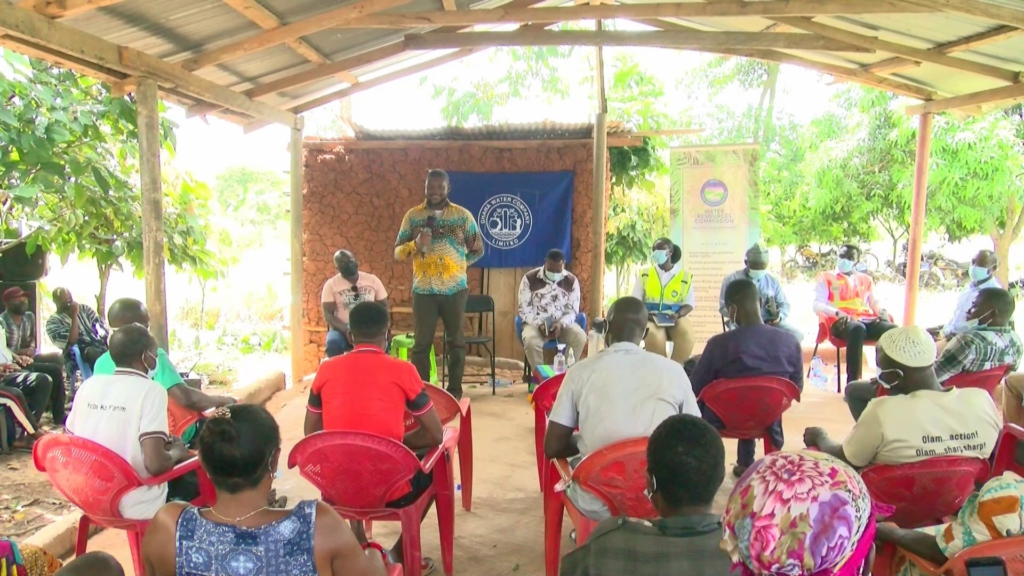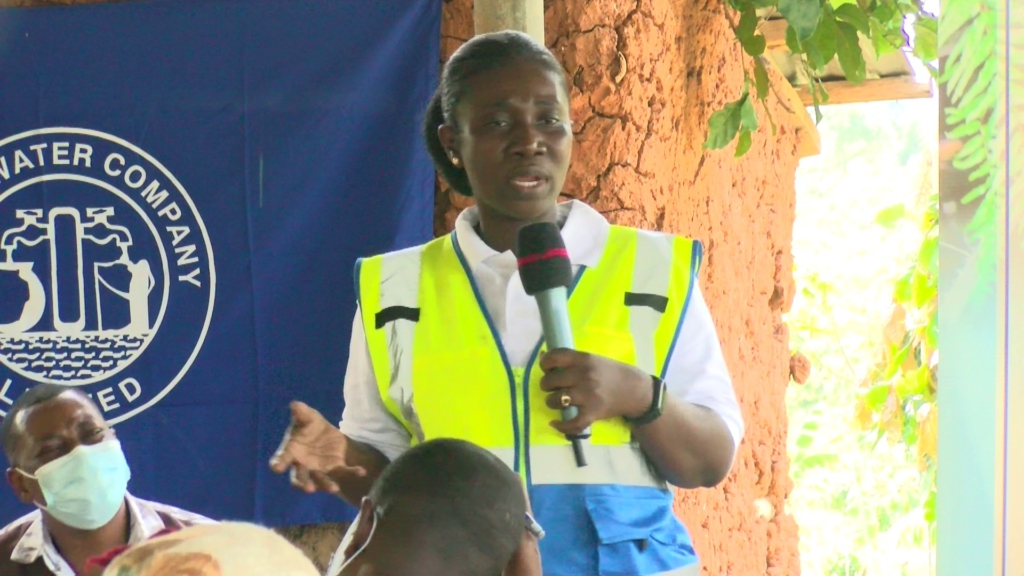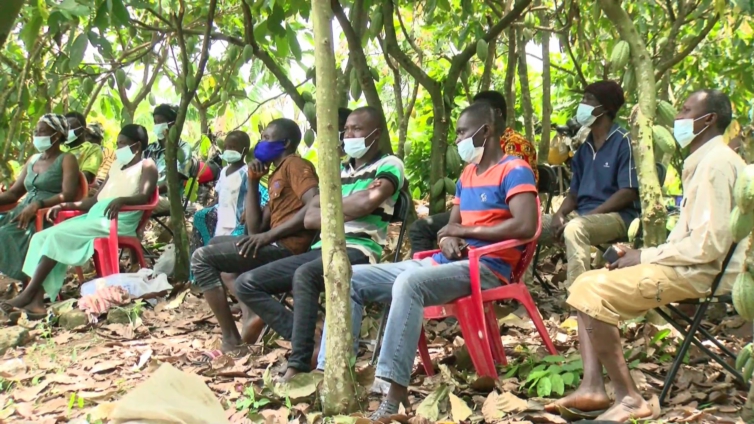In the face of a looming water crisis in Kumasi, stakeholders have started engaging settler farming communities around the Barekese Dam to halt the spate of encroachment.
Rampant deforestation and use of agrochemicals on farmlands close to the dam’s buffer zones are impacting the quality of water being generated from the Dam.
The Ghana Water Company, Water Resources Commission and the Asanteman Land Restoration Project have activated a community sensitisation project.
Inhabitants of the catchment communities here are mainly cocoa farmers whose activities negatively impact the operation of the Barekese Dam.
The activities of these farmers have resulted in major pollution of the water source, threatening the quality of water supply. Tree cutting and use of agrochemicals on the encroached land, are major challenges.

Ashanti Regional Water Quality Manager of Ghana Water Company, Adam Yakub, explained that the practice affects the operations of the company that leads to reducing the available water meant for the public.
“…because of the application of these agrochemicals on the land, it tends to increase algae which is detrimental to our health.
When we treat the water, part of the water is thrown away as dirty water as a result of the treatment so as these activities continue, the dirty aspect of the water turn to increase therefore the available water for the consuming public turn to reduce even though the planned capacity is intact”.
The buffer areas of water bodies are reserves that help protect the Dam. But the farming activities are occurring close to the zone.
Settler farmers are being trained to help enforce the 100-meter buffer zone restriction. The training is spearheaded by the Asanteman Land Restoration Project.

Project coordinator, Fred Kyei, said the model can be replicated in all catchment areas around the rivers and water bodies.
“We have turned the farmers into vigilantes. They are excited about this paradigm shift where those who are farming uphill - 400 meters from the water and river bodies are being supplied with with trees.
"They are acting as guards and whipping people in line and making sure that the buffer zone which is 100 meters are protected. We think this model can be replicated in all catchment areas around our river and water bodies”.

Senior Basin Officer at the Water Resources Commission, Abena Dufie Weredu Breman, says those encroaching the buffer zone policy shall be sanctioned.
She said this is critical because the activities of the encroachers threatens the quality of water that comes into the homes of the public.
"We have educated them on how they should embark on agroforestry systems and organic farming to protect the quality and quantity of the water resources within the catchments. Because all their activities are affecting the quality of water resources and treatments of the water that comes into our homes."
Madam Weredu Breman continued that, "Going forward, if they breach the laws of our lands, the buffer zones policies and other laws that govern the protection of these water resources, they will be sanctioned.
"Because there is no law in Ghana that allows people to live so close and farm so close to water bodies, so anybody that does anything contrary to these laws will be sanctioned”.
Lands and Natural Resource Minister, Samuel Abu Jinapor, says laws that bar land encroachment must be enforced.
“The rules are there, the most important thing is that we enforce them. I think that the rules and regulations which requires that people do not build or encroach are all regulations that we must find a mechanism to enforce and enforce them strictly”.
The settler farmers have therefore resolved to protect the area and abide by the policies.
Interest groups are worried of a water crisis in Kumasi and environs and possible tariff hikes if the current situation persists.
Latest Stories
-
Bibiani Goldstars crowned champions, entire 42-man squad rewarded by betPawa in historic bonus payout
2 seconds -
Capping Supreme Court judges won’t be helpful – Justice Suurbaareh
14 minutes -
Mahama is Ghana’s most prepared President – Gabby Otchere-Darko
27 minutes -
Samer Chedid succeeds Mauricio Alarcón as CEO of Nestlé Central and West Africa
49 minutes -
Stephen Ntim takes temporal break as NPP Chairman due to health concerns
1 hour -
Abolish ‘Additional Judge’ practice in lower courts – Justice Dennis Adjei urges
2 hours -
District assembly elections are already partisan – Sir Dennis Adjei urges reform
2 hours -
Africa World Airlines reschedules Accra–Ouagadougou route launch to 1st July
2 hours -
Mahama vows to reignite dream of Bukom Boxing Academy
2 hours -
Once I put on my judicial cap, my faith has nothing to do with judgement – Supreme Court nominee
2 hours -
LGBTQ: Judges must uphold the law, not personal faith – Justice Dennis Adjei
2 hours -
“If you cannot marry at 16, why sex at 16?” – Justice Adjei punches holes in Ghana’s laws
3 hours -
Criminalise falsehoods online just like offline offences – Sir Dennis Adjei backs misinformation law
3 hours -
Rain‑soaked Accra turned electric as ‘3 Faces of Jeffrey Nortey’ sold out National Theatre
3 hours -
Justice Dzamefe backs AI, virtual courts to tackle delays in justice delivery
3 hours

